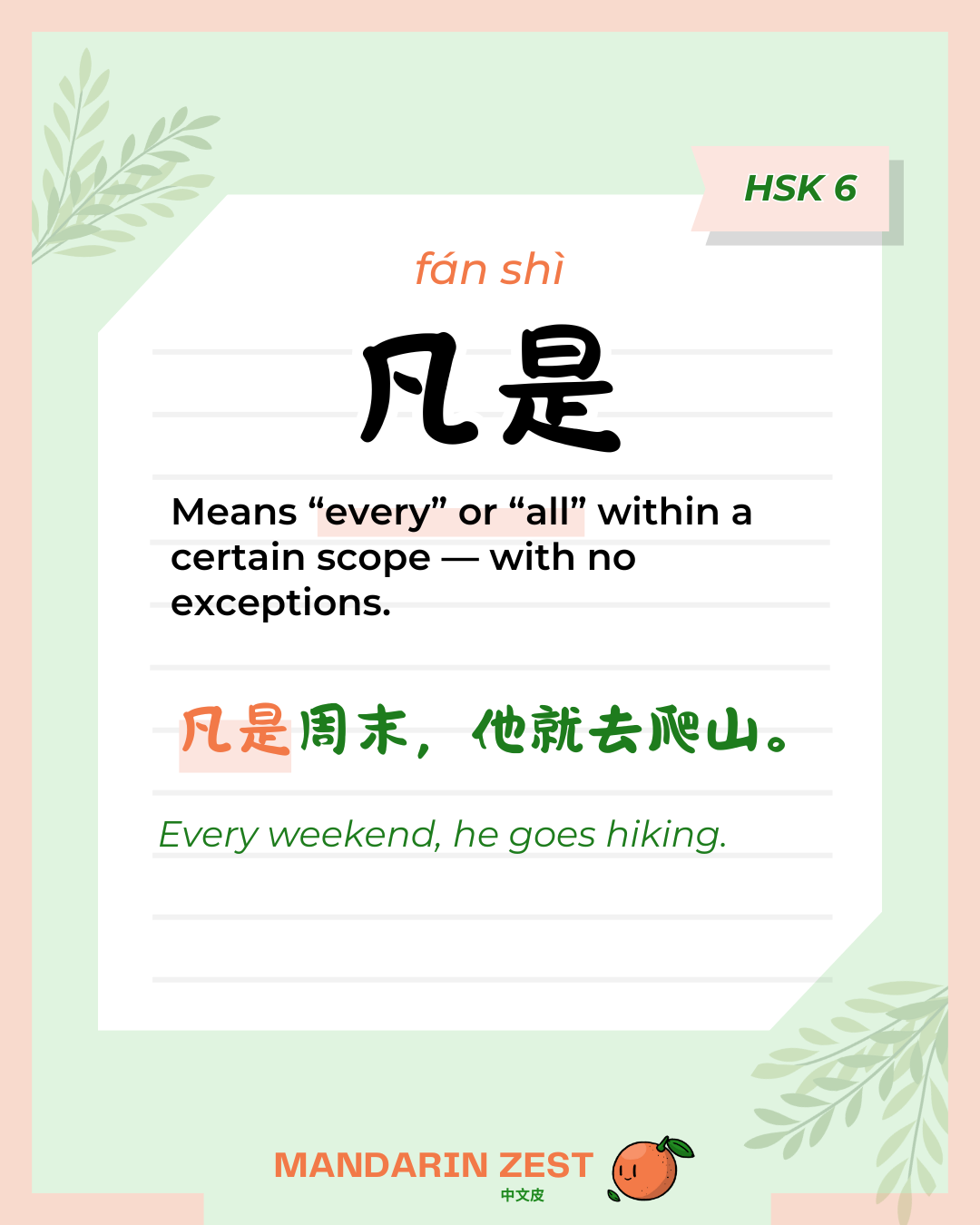凡是 (fán shì) means “every” or “all” within a certain scope — with no exceptions. 凡是 emphasizes all within a category, usually in a rule-like, broad, or official tone.
It’s used to emphasize total inclusion, like saying:
“As long as it is...”
“Every case of...”
“All things that...”
Basic Structure:
凡是 + Noun + 都 / 就 / 一律 + Verb/Adjective
Advanced Structure:
凡(是) + Noun + 无不 / 均 + Verb/Adjective
无不 means “none do not,” i.e., all do
均 is a formal/literary way of saying 都
Sample Sentences
凡是符合条件的申请人,我们都会考虑。All applicants who meet the requirements will be considered.
凡是学生都要参加考试。All students must take the exam.
凡是提交的文件,均需盖章。All submitted documents must be stamped.
In a Text
我在大学时参加了学生会,那个时候我们有很多规矩。凡是要组织校内活动的人,都必须提前两周提交申请,并且通过审批。凡是申请通过的活动,一律要在官网上公开说明内容、时间和地点。
我们学生会主席是个非常有责任心的人,凡是他交代的任务,大家无不认真对待,从不敷衍。为了让活动顺利进行,凡是涉及外校合作的计划,均需通过老师的同意。
那段时间虽然很忙,但我也学到了很多东西。现在回想起来,凡是我经历过的事,都成为了我成长的一部分。
审批 (shěnpī): to review and approve; approval
有责任心 (yǒu zérènxīn): responsible; having a sense of responsibility
敷衍 (fūyǎn): to do something half-heartedly; to go through the motions
When I was in university, I joined the student council, and at that time, we had a lot of rules. Anyone who wanted to organize an on-campus event had to submit an application two weeks in advance and get it approved. All approved events were required to publish details, times, and locations on the school website.
Our student council president was a very responsible person. Every task he assigned was taken seriously by everyone—never treated carelessly. To ensure events ran smoothly, any plan involving cooperation with other schools had to be approved by a faculty member.
Although that period was very busy, I learned a lot. Looking back now, everything I went through has become a part of my personal growth.





凡是的文章都有意思,谢谢你们